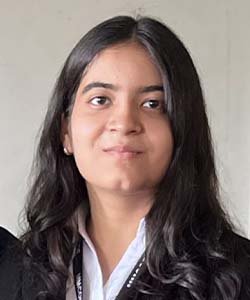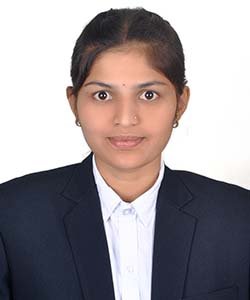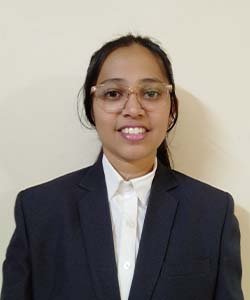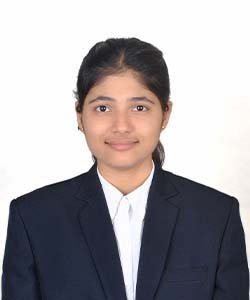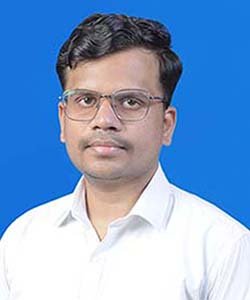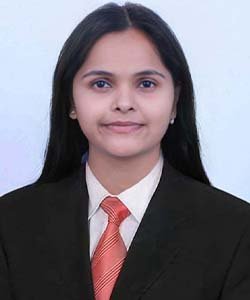Electrical Engineering
Home » UG Programme » Electrical » About Department
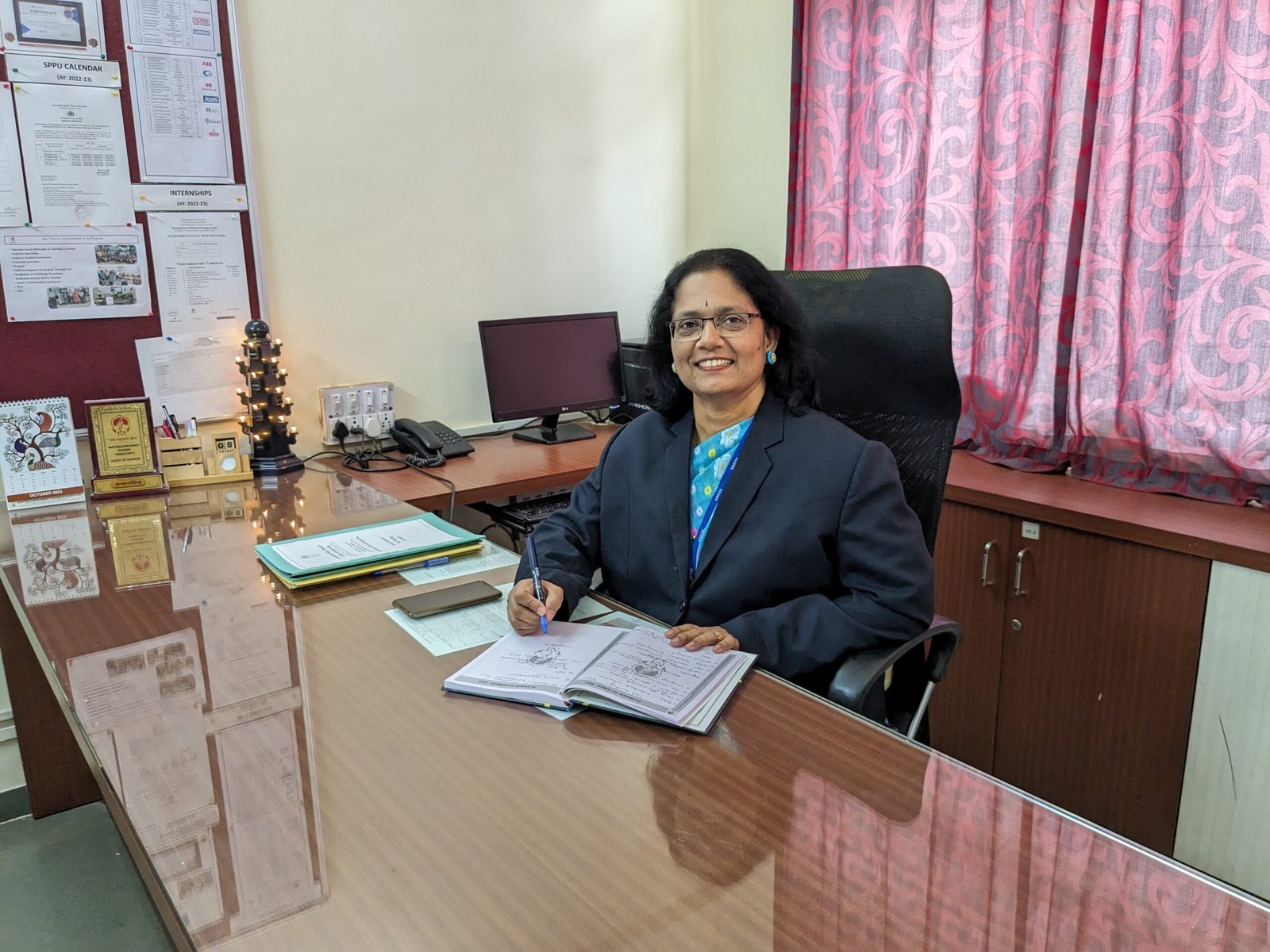
Head of Department of Electrical Engineering
Electrical Engineering is the heart of modern innovation, from power systems, smart grids, power electronics, machines and control to electric vehicles and AI- driven technologies. Our department emphasizes creativity, analytical thinking, and hands-on problem-solving to address real-world challenges.Established in 2013 with an intake of 60 students, our department offers undergraduate (B.Tech), postgraduate (M.Tech in Power Electronics & Drives), and B.Tech for working professional programs all affiliated to Savitribai Phule Pune University. With the institute gaining autonomous status in 2024, we’ve further strengthened our curriculum, industry collaborations, and research initiatives.
We provide students with cutting-edge lab facilities, industry-relevant training, and exposure to modern tools and technologies. Our vibrant student community actively participates in technical clubs like EESA and project-based teams like Efficycle, promoting leadership, innovation, and teamwork. With strong academic rigor, robust industry interaction, and focused placement training, our students are well-prepared to meet the demands of the ever-evolving engineering landscape.
We are committed to shaping technically sound, socially responsible engineers
who contribute to a sustainable and smarter future.
Department Highlights
- Accredited by National Board of Accreditation(NBA)
- Electrical Engineering Students appears in University Rank holder list
- Well-equipped laboratories with state of art equipment.
- Center of Excellence in Automation (PLC/SCADA) to facilitate Projects and Research Activities.
- 100% industry oriented internship and industry oriented Projects based learning (PBL) for the students, which highlights strong industry connect of the department.
- Excellent research culture which promotes students and industry oriented Projects based learning (PBL) for the students, which highlights strong industry connect of the department.
- Excellent research culture which promotes students and faculties to publish quality papers in national and international conference and referred journals.
- Strong industry connect helps the students to get well placed as well offers various skill development programs and expert sessions.
- Active and efficient students clubs such as Effi-cycle, PLC & SCADA, Career Development Club.
- Team Achilles received overall dynamic test award for designing four wheeled electric vehicle at SAEINDIA Effi Cycle 2024 enent held at LPU,Jalandhar ,Punjab
- Team Achilles secured all over india second rank at SAEINDIA Effi cycle 2024 Event held at LPU Jalandhar ,Punjab
- Active participation of Electrical Engineering students in multi-disciplinary events e.g. ROBOCON, BAJA, SUPRA, ASHRAF, Efficycle etc.
- Virtual Lab Experiments from IITs are carried out for various students.
- Various IIT spoken tutorial course conducted.
- Highest Salary Package of department student Rs.23 LPA (YAMAHA JAPAN)
- 15 MoUs Signed with various industries towards strong industry connect.
Vision
To be center of excellence in electrical engineering by developing globally skilled professionals through innovation, sustainability and technological growth.
Mission
- M1: To provide quality education in electrical engineering through multidisciplinary, practical and industry oriented learning.
- M2: To develop ethical and skilled engineers with expertise in emerging electrical technologies.
- M3: To nurture lifelong learning and adaptability for addressing global, societal and future challenges.
Program Educational Objectives (PEOs)
Engineering Graduates will be able to:
- PEO1:Impart innovation and core knowledge to identify, analyze and solve the electrical engineering problems.
- PEO2:PExcel in Research and enhance their industry oriented professional skills.
- PEO3:Demonstrate leadership qualities to lead diverse teams and exhibit commitment towards societal and global needs.
Knowledge and Attitude Profile (WK)
- WK1: A systematic, theory-based understanding of the natural sciences applicable to the discipline and awareness of relevant social sciences.
- WK2: Conceptually-based mathematics, numerical analysis, data analysis, statistics and formal aspects of computer and information science to support detailed analysis and modelling applicable to the discipline.
- WK3: A systematic, theory-based formulation of engineering fundamentals required in the engineering discipline.
- WK4: Engineering specialist knowledge that provides theoretical frameworks and bodies of knowledge for the accepted practice areas in the engineering discipline; much is at the forefront of the discipline.
- WK5: Knowledge, including efficient resource use, environmental impacts, whole-life cost, re-use of resources, net zero carbon, and similar concepts, that supports engineering design and operations in a practice area.
- WK6: Knowledge of engineering practice (technology) in the practice areas in the engineering discipline.
- WK7: Knowledge of the role of engineering in society and identified issues in engineering practice in the discipline, such as the professional responsibility of an engineer to public safety and sustainable development.
- WK8: Engagement with selected knowledge in the current research literature of the discipline, awareness of the power of critical thinking and creative approaches to evaluate emerging issues.
- WK9: Ethics, inclusive behavior and conduct. Knowledge of professional ethics, responsibilities, and norms of engineering practice. Awareness of the need for diversity by reason of ethnicity, gender, age, physical ability etc. with mutual understanding and respect, and of inclusive attitudes.
Programme Outcomes (POs)
A Graduate of the Computer Engineering Program will be able to
PO1: Engineering Knowledge: Apply knowledge of mathematics, natural science, computing, engineering fundamentals and an engineering specialization as specified in (WK1 to WK4) respectively to develop the solution of complex engineering problems.
PO2: Problem Analysis: Identify, formulate, review research literature and analyze complex engineering problems reaching substantiated conclusions with consideration for sustainable development. (WK1 to WK4)
PO3: Design/Development of Solutions: Design creative solutions for complex engineering problems and design/develop systems/components/processes to meet identified needs with consideration for the public health and safety, whole-life cost, net zero carbon, culture, society and environment as required. (WK5)
PO4: Conduct Investigations of Complex Problems: Conduct investigations of complex engineering problems using research-based knowledge including design of experiments, modelling, analysis & interpretation of data to provide valid conclusions. (WK8).
PO5: Engineering Tool Usage: Create, select and apply appropriate techniques, resources and modern engineering & IT tools, including prediction and modelling recognizing their limitations to solve complex engineering problems. (WK2 and WK6)
PO6: The Engineer and The World: Analyze and evaluate societal and environmental aspects while solving complex engineering problems for its impact on sustainability with reference to economy, health, safety, legal framework, culture and environment. (WK1, WK5, and WK7).
PO7: Ethics: Apply ethical principles and commit to professional ethics, human values, diversity and inclusion; adhere to national & international laws. (WK9)
PO8: Individual and Collaborative Team work: Function effectively as an individual, and as a member or leader in diverse/multi-disciplinary teams.
PO9: Communication: Communicate effectively and inclusively within the engineering community and society at large, such as being able to comprehend and write effective reports and design documentation, make effective presentations considering cultural, language, and learning differences
PO10: Project Management and Finance: Apply knowledge and understanding of engineering management principles and economic decision-making and apply these to one’s own work, as a member and leader in a team, and to manage projects and in multidisciplinary environments.
PO11: Life-Long Learning: Recognize the need for, and have the preparation and ability for i) independent and life-long learning ii) adaptability to new and emerging technologies and iii) critical thinking in the broadest context of technological change. (WK8)
Programme Specific Outcomes (PSOs)
After successfully completing the degree program. Electrical engineering graduates will be able to:
- PSO1: Design and validate efficient electrical system through core and professional skills.
PSO2: Exhibit multidisciplinary skills in the area of Robotics, AI and Machine Learning for Electrical engineering applications.
PSO3: Formulate sustainable solutions for research in societal and industrial needs pertaining to green technology.
Toppers List 2024-25
Second Year
Third Year
Final Year
Our Recruiters













Electrical Engineering
Our Recruiters














